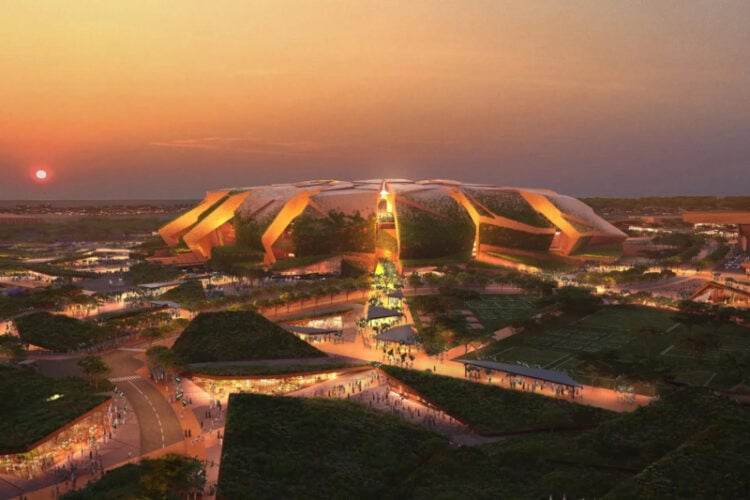Publisher: Maaal International Media Company
License: 465734
World Cup 2034: 15 Stadiums will Combine Innovation, Modern Architecture, and Modern Technologies in the Kingdom
In 2034, the Kingdom of Saudi Arabia will be on the cusp of a historic sporting event that has never been seen before, as the world awaits the FIFA World Cup Finals, which will be held on its soil for the first time, making it the first country in history to host 48 teams in one country during the World Cup Finals.
Hosting the historic World Cup is the culmination of an ambitious vision that began years ago and continues to grow and develop, as the Kingdom’s bid to host the 2034 World Cup was thoroughly, scientifically, and deeply studied, and received the highest technical evaluation ever granted by FIFA to a bid submitted to host the World Cup, confirming the effectiveness of the Kingdom’s strategy and its effectiveness in running for hosting.
The Kingdom seeks to develop and build stadiums that are among the most modern in the world. These stadiums will not be mere venues for matches, but will be sports monuments that combine innovation and modern architecture. The stadiums will be designed using the latest technologies to ensure the comfort of the audience, including effective cooling systems to combat the heat, in addition to smart technologies to improve the experience of fans inside the stadiums.
اقرأ المزيد
The 15 stadiums that will host the matches of the 2034 World Cup are: King Salman International Stadium, Prince Mohammed bin Salman Stadium, King Fahd Sports City Stadium, South Riyadh Stadium, Prince Faisal bin Fahd Sports City Stadium, King Saud University Stadium, Roshn Stadium, and the new Al-Murabba Stadium in Riyadh.
In addition to King Abdullah Sports City Stadium, King Abdullah Economic City Stadium, Jeddah Central Stadium, Qiddiya Coast Stadium in Jeddah, Aramco Stadium in Khobar, Neom Stadium, and King Khalid University Stadium in Abha.
It is worth noting that 230,000 hotel rooms will be provided, distributed across the five host cities and the cities supporting VIPs, FIFA delegations, participating teams, media professionals and tournament fans, in addition to proposing 132 training sites in 15 cities that will host the 48 participating teams and their accompanying delegations, including 72 stadiums designated for training camps, and two training sites designated for referees.








